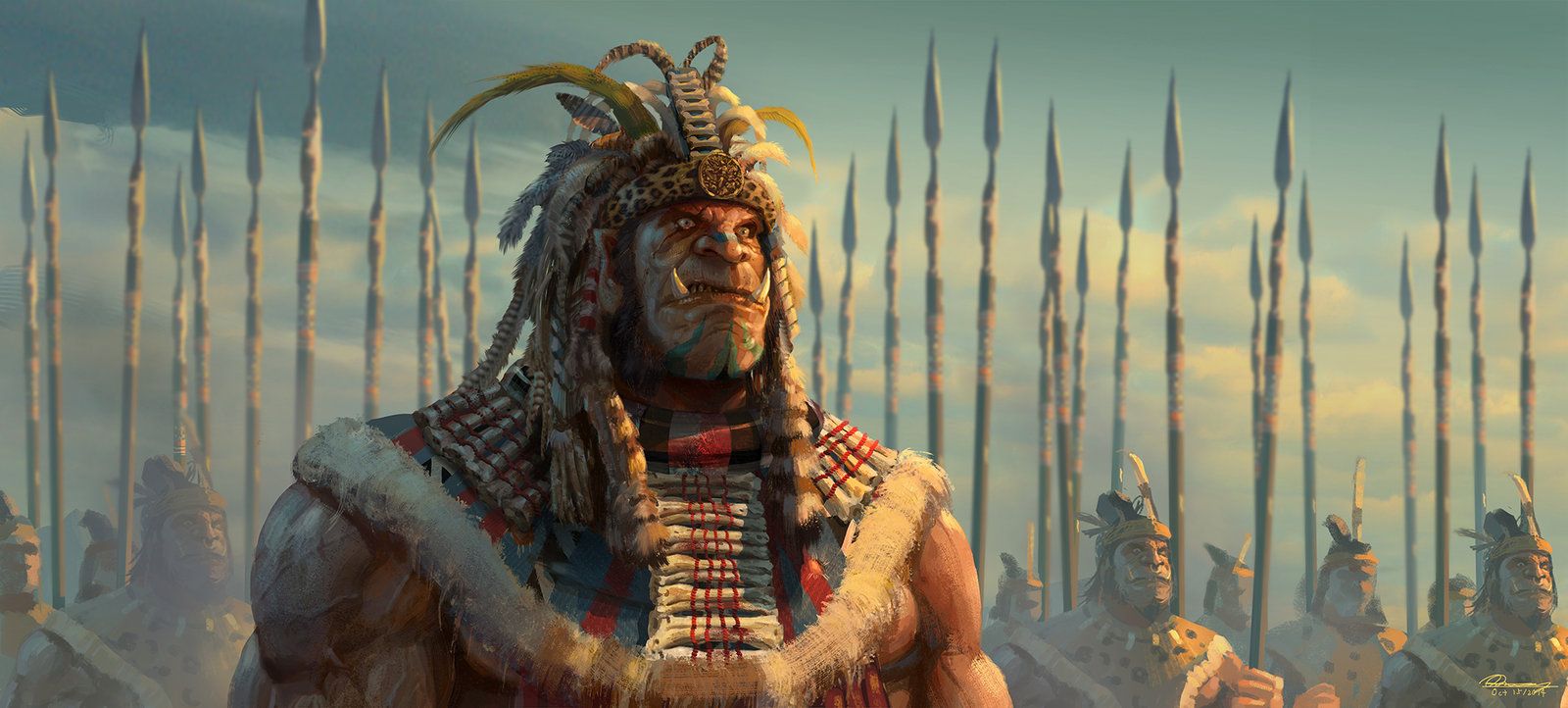Chieftain
Chieftains or "chiefs" are levelled characters who have reached 6th to 8th level, though a rare few may be higher than that. Most chieftains are fighters. They have decision-making authority over tribes and chiefdoms. Chieftains answer to no one, though they will gather a group of trusted sub-chiefs whom they will rely upon for advice and the delegation of tasks.
In distinguishing the chiefs of tribes, chiefdoms and nations from one another, outsiders may wonder at the same title being applied to each. Tribes are a sub-set of chiefdoms, while the latter is a sub-set of nations. However, while many chiefs might be present, there is a personal hierarchy that exists between them; each tribal chief speaks for their tribe and elects the best of their number to lead the chiefdom. In like manner, chiefdoms will select from their number the chief of the whole nation. To outsiders, this seems confusing. It matters to the people that the choice is made on merit rather than bloodline. When one chief falls, there is always another ready to be named. No member of the nation becomes a chief through birth. It is this depth of leadership that preserves the people.
Qualities
Chiefs rise to their positions through a combination of personal resolve, ability, background and charisma, which together have been served by the support of others and a wealth of chance that has favoured them through more than a decade of trial and conflict. They have learned to sacrifice themselves, to use their experience and wit to preserve their people and keep the peace among their people. Those who are best at this rise high — but every chief has characteristics that, should the moment arise, would enable each to shepherd the whole nation in a crisis. They have the will to not think of themselves first. When they speak, they choose the words their people would want; when they act, they choose the actions that will best serve their people. This role sets them apart; it asks them to hold themselves, and their comfort, emotions and loves as secondary to the greater need.
For this reason, a chieftain may seem unapproachable or obtuse. They are not politicians, or souls that hold their blood more precious than their kin, so they cannot be bought or persuaded by self-interest. They can only be persuaded by arguments that bring favour for the whole of their people — a perspective that is often misconstrued or unappreciated by more "civilized" outsiders.
Chiefs will have a wide range of sage abilities; they will be an amateur in most or all the studies available to their character class, with the highest knowledge in those studies associated with leadership. Very often they will have some unsuspected study — and a substantial number will be multi-classed. They will be able to read and write, swim, ride a mount and either play an instrument or be able to sing.
Generation
When generating the ability stats for a chieftain non-player character, roll 4d6 (discarding lowest die) for all six stats. Arrange the numbers from highest to lowest accordingly: primary attribute, intelligence, strength, constitution, wisdom, charisma, Dexterity. Once the stats are arranged, add +2 strength and charisma; and +1 to all other stats. When rolling hit points, "1s," "2s" and "3s" should be re-rolled ("3s" may be retained for illusionists and mages).
The character's age should be generated normally, plus 3d6+10 years (1 in 8 chieftains will be 2d8+27 years older). For example, a typical 1st level human fighter is 14+1-4 years old. This is increased by 13-28 in most cases, and 29-43 years otherwise.
These are guidelines and need not be adhered to exactly for game purposes.
See The Adventure
